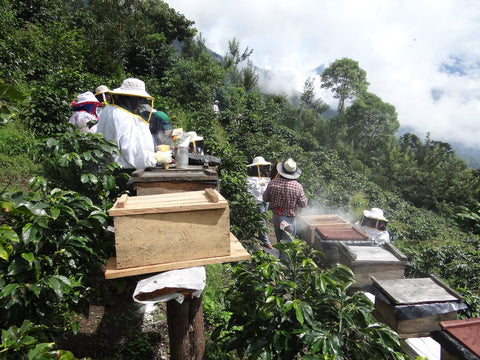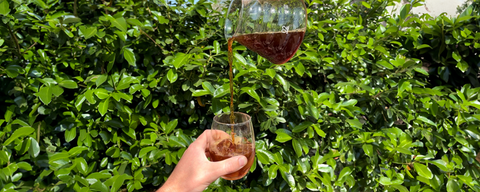Not all coffee is born equal
The importance Jeremy and I place on our coffee sourcing reflects the essence of what Union is about. For this reason I thought it could be useful to write a very short series of blog posts describing our approach to the ethics of coffee buying.
I am aware that the Fairtrade logo is one of the most widely recognised symbols to UK coffee consumers, even if people don’t specifically know what it means in detail. Ever since we started Union in 2002, our core ethos was to trade equitably with coffee farmers, because we believed it was the correct way to treat people and this would give us access to the high level of quality we demanded.
But over the years we found limitations in what official certified Fairtrade can achieve for us and also for the farmers we buy from, so we evolved our own coffee buying philosophy to go beyond just buying Fairtrade coffee. We call this Union Direct Trade and I want to explain what this means to us and why we invest so heavily and give so much importance to this purchasing model.
Teaching farmers at Tuiboch, Huehuetenango to cup their own coffee
What is Direct Trade?
Direct Trade is a phrase increasingly used by coffee roasters who buy (or maybe just claim to buy) their coffee straight from producers. This approach eliminates the “middlemen” who buy in the local market. In its truest sense it should also remove the traditional export and import agents although if pricing is transparent through all steps of the supply chain then local agents can indeed add value to the coffee and provide a useful service.
As an advocate of Direct Trade we think the model can be successful because it creates mutually beneficial relationships between roasters and coffee farmers and co-operatives. We developed Union Direct Trade to endorse our authentic business relationships with coffee producers.
What does Union Direct Trade mean to farmers?
*Enables farmers to freely negotiate price and opens up transparent costs throughout the supply chain.
*Establishes baseline price with premiums for quality, rewarding farmers who innovate and improve the value of their coffee.
*Develops long-term relationships enabling farmers to plan for their future.
*Establish forward purchasing commitments so farmers can plan for successive harvests.
*Foundation for personal relationships essential for timely knowledge about coffee quality, social and environmental concerns.
*Supports forward financing, either direct or with specialized pre-finance agencies, for smallholders most in need.
*Does not restrict us to certified coffee or co-operatives in the way that Fairtrade does.
*Applies a code of conduct that addresses labour and environmental standards.
*Enables us to communicate the stories of coffee producers with authenticity.
*Targets our financial resource specifically to the producers we buy from, in contrast to the general Fairtrade marketing levy.
These personal relationships enable us learn more about the nature of coffee farming from producers directly. We consider it as a code of conduct or structure which is not only beneficial to small producers, but provides the channel for us to monitor and evaluate the quality of the coffee. By nurturing these relationships, and investing through a transparent set of standards, it enables farmers to benefit financially and improve their coffee and environment.
We believe this is the most effective way to expand economic opportunity and for smallholders to escape the commodity market by producing coffee with addded value.
Roy Solis Blanco with Steven Macatonia at San Jeronimo micromill
What is the weakness of Direct Trade?
There are many criticisms about Direct Trade purchasing particularly as it is a term that is being widely adopted with limited explanation. But apart from that the main issue is:-
- There is no external agency auditing claims that are made or checking labour and environmental standards to an accredited benchmark in the way that other certification schemes operate.
In my next blog post, I talk about how we have looked at addressing this weakness.


